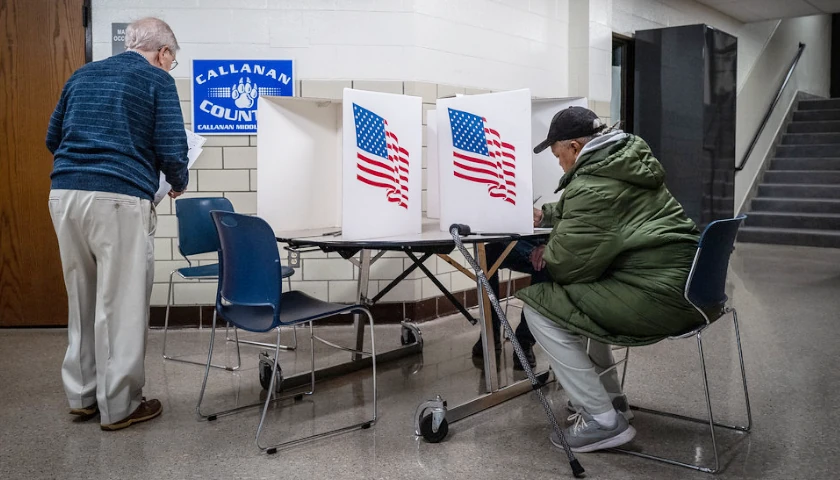by Karl Notturno
I got a letter last week informing me that my catastrophic health care insurance was terminated.
The plan was terminated because of a technical glitch. Instead of billing the credit card I had designated as my primary payment option, my healthcare provider billed an old and deactivated card.
A declined payment of $10.42 (to supplement an early payment due to rising premiums) and another for $127.49 later, I lost my coverage, long before I realized there was anything wrong.
If this happened in a different industry, I likely would not have had any problems. I would have called the company and, after a short conversation and the successful payment of my outstanding premiums, I would have had my insurance back.
But the American healthcare industry is not just any industry. It is an industry that is controlled, to varying degrees, by federal, state, and local governments.
When I called my provider, the representative was unable to fix my problem because local government regulations do not allow individuals to sign up for health insurance outside of an enrollment window.
My provider patched me through to DC Health Link, a District of Columbia government agency—set up in accordance with the Affordable Care Act—assigned with establishing a local health care exchange program. My provider told me I would have to plead my case there.
A bored yet relatively helpful receptionist at DC Health Link collected my information and listened to my story. She told me to send any supporting evidence to a nameless generic email address and to wait four weeks to hear whether or not my appeal had been approved.
If the agency does not approve my appeal, I will be without my catastrophic health care insurance until 2020. If, God forbid, I were to be hit by a truck, I likely would have to declare bankruptcy.
I began to hear the theme music from Terry Gilliam’s film “Brazil” in my head.
The 1985 classic, set in a dystopian future where massive bureaucracies force competent HVAC professionals to become vigilantes just to avoid the headache of paperwork, has turned from a far-fetched nightmare into a dramatized satire of our current society.
Thankfully, unlike the film’s poor Mr. Buttle who ends up dying due to a typographical error caused by an errant swatted fly, my health care provider’s error—if not rectified by DC Health Link—will only leave me uninsured. But it should serve as a helpful reminder of the consequences an overwrought bureaucracy may yield.
Being a resourceful young lobbyist, I immediately called the constituent services representative of my local councilmember. I am happy to report that she was one of the most helpful people I’ve spoken to in D.C. government.
She took the time to compile a detailed diagram of my problem and to forward it to the relevant personnel at the DC Health Benefit Exchange Authority, with a promise that we would resolve the issue. With luck, I will be reinsured promptly. I hope.
But most people don’t have the time or the wherewithal to deal with their massive bureaucracies. And if it’s hard enough to navigate a behemoth with 35,000 employees, imagine the challenge of dealing with the U.S. federal government with millions of employees.
Most conservatives don’t think that government employees are evil. They worry that the government, in its sheer size, becomes impersonal and inhuman. Given the frequency of errors and miscommunications, and given the propensity for humans to err, be complacent, and become mechanical institutional sheep, there are many reasons to decentralize institutions as much as possible so that problems may be solved by autonomous individuals rather than mindless automatons.
The more functions we relegate to government, the more our fortunes are at the whims of a capricious and overly complicated machine that seems often to have a mind of its own. Humanity comes when individuals know when not to follow the script. When they take that extra step to help each other—a step that becomes increasingly risky and difficult when the system, rather than the person, takes control.
The scary scene in a sci-fi artificial intelligence thriller isn’t the scene in which the AI starts acting like it has a mind of its own. It’s the scene when humanity, in a moment of insecurity, decides that it will hand over control of key functions of society to the system that we created.
Our system of government is a form of artificial intelligence. Unchecked, it acts in ways that no reasonable human would ever act. The vast processes, protocols, and the bureaucrats who staff the various cogs in the machine end up operating as an emergent phenomenon with a mind of its own—a form of artificial intelligence that is far more interested in its own self-preservation than the job the people have given it.
This emergent phenomenon actively bribes its staffers with promises of comfort and a lack of culpability. Responsibility is painful and often requires thought. Our artificial intelligence is more than happy to alleviate this pain.
This is why we fight for federalism, accountability, and limited government—so that our creation doesn’t end up taking us over and imposing its unfathomable will.
– – –
Content created by the Center for American Greatness, Inc. is available without charge to any eligible news publisher that can provide a significant audience. For licensing opportunities for our original content, please contact [email protected].




